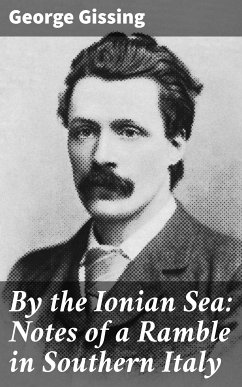
Tent life with English Gipsies in Norway (eBook, ePUB)
Enriched edition. A Fascinating Glimpse into Nomadic Gypsy Life in Norway
Kommentar: Gainsborough, Harriet / Redaktion: Good Press
Versandkostenfrei!
Sofort per Download lieferbar
1,99 €
inkl. MwSt.
Weitere Ausgaben:

PAYBACK Punkte
0 °P sammeln!
In "Tent Life with English Gipsies in Norway," Hubert Smith embarks on an ethnographic travelogue that captures the essence of Romani culture amidst the stark yet breathtaking landscapes of Norway. The narrative is imbued with vivid imagery and a conversational style that invites readers to engage intimately with the experiences of the Gipsy community. Through detailed observations and anecdotes, Smith navigates themes of identity, displacement, and the transient nature of Gipsy life, all set against the backdrop of Norway's natural beauty. The book reflects the 19th-century fascination with n...
In "Tent Life with English Gipsies in Norway," Hubert Smith embarks on an ethnographic travelogue that captures the essence of Romani culture amidst the stark yet breathtaking landscapes of Norway. The narrative is imbued with vivid imagery and a conversational style that invites readers to engage intimately with the experiences of the Gipsy community. Through detailed observations and anecdotes, Smith navigates themes of identity, displacement, and the transient nature of Gipsy life, all set against the backdrop of Norway's natural beauty. The book reflects the 19th-century fascination with nomadic societies and their complex relationship with the modern world, making it a vital piece of both travel literature and social commentary of its time. Hubert Smith, a keen observer and advocate for marginalized communities, was deeply moved by his encounters with the Gipsies during his travels. His background in social sciences and passion for cultural preservation significantly informed his approach in this book, as he sought to illuminate a way of life often misunderstood and romanticized by mainstream society. His nuanced understanding enabled him to provide a respectful yet critical perspective on the Gipsy culture and its challenges, making this work not just a travel narrative but a call for empathy and understanding. Readers interested in cultural anthropology, travel literature, or the Romani experience will find "Tent Life with English Gipsies in Norway" a compelling and illuminating read. Smith's work offers both a window into a unique lifestyle and a reflection on broader societal issues, making it essential for anyone eager to explore the intersections of culture, identity, and the human experience. In this enriched edition, we have carefully created added value for your reading experience: - A succinct Introduction situates the work's timeless appeal and themes. - The Synopsis outlines the central plot, highlighting key developments without spoiling critical twists. - A detailed Historical Context immerses you in the era's events and influences that shaped the writing. - An Author Biography reveals milestones in the author's life, illuminating the personal insights behind the text. - A thorough Analysis dissects symbols, motifs, and character arcs to unearth underlying meanings. - Reflection questions prompt you to engage personally with the work's messages, connecting them to modern life. - Hand-picked Memorable Quotes shine a spotlight on moments of literary brilliance. - Interactive footnotes clarify unusual references, historical allusions, and archaic phrases for an effortless, more informed read.
Dieser Download kann aus rechtlichen Gründen nur mit Rechnungsadresse in A, B, BG, CY, CZ, D, DK, EW, E, FIN, F, GR, H, IRL, I, LT, L, LR, M, NL, PL, P, R, S, SLO, SK ausgeliefert werden.













